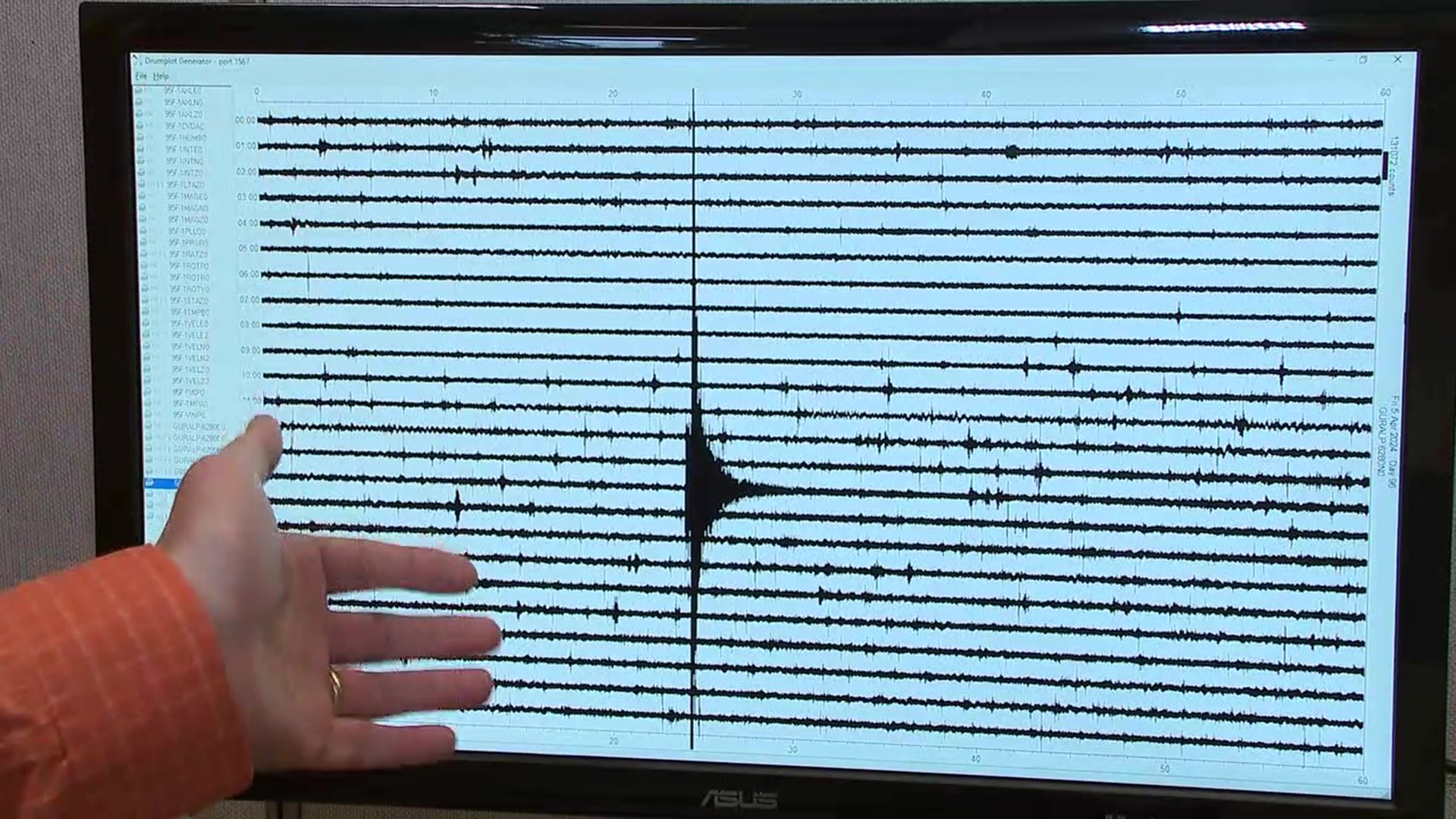LEWISBURG, Pa. — Students eagerly studied a seismometer inside the O'Leary Center at Bucknell University in Lewisburg on Friday. The seismometer measured the earthquake that happened near Whitehouse Station, New Jersey, around 10 a m.
"The earthquake that happened today occurred at this location, Whitehouse Station, and that location is right along this major fault in northern New Jersey called the Ramapo Fault, and the earthquake today probably is related to this major structural boundary," said Mary Beth Gray, a geology professor at Bucknell University.
Professor Gray says earthquakes happen all over the place. Sometimes, we don't feel them. Other times, we do.
"The rocks on either side of the fault got squeezed together and one block of rock got uplifted relative to the other, and that occurred probably along this major boundary here."
Earthquakes are not common in Pennsylvania and New Jersey. The last time a 4.8 magnitude earthquake hit New Jersey was in the late 1800s.
"They had been occurring within roughly every 50 years, so it had been over 100 years since our last one in Jersey, and so you can kind of say we are overdue," said Rob Jacob, a geophysics professor at Bucknell.
Bucknell University's seismometer sensed the earthquake in New Jersey. The seismometer sits on the ground and senses any shaking that happens in the ground.
"This big amplitude event here on this line was the actual New Jersey earthquake that occurred roughly at 10:20 this morning," Prof. Jacob said. "It started to shake our seismometer within about a minute of when it occurred in New Jersey."
Bucknell University professors say there's a chance of aftershocks from the New Jersey earthquake.

